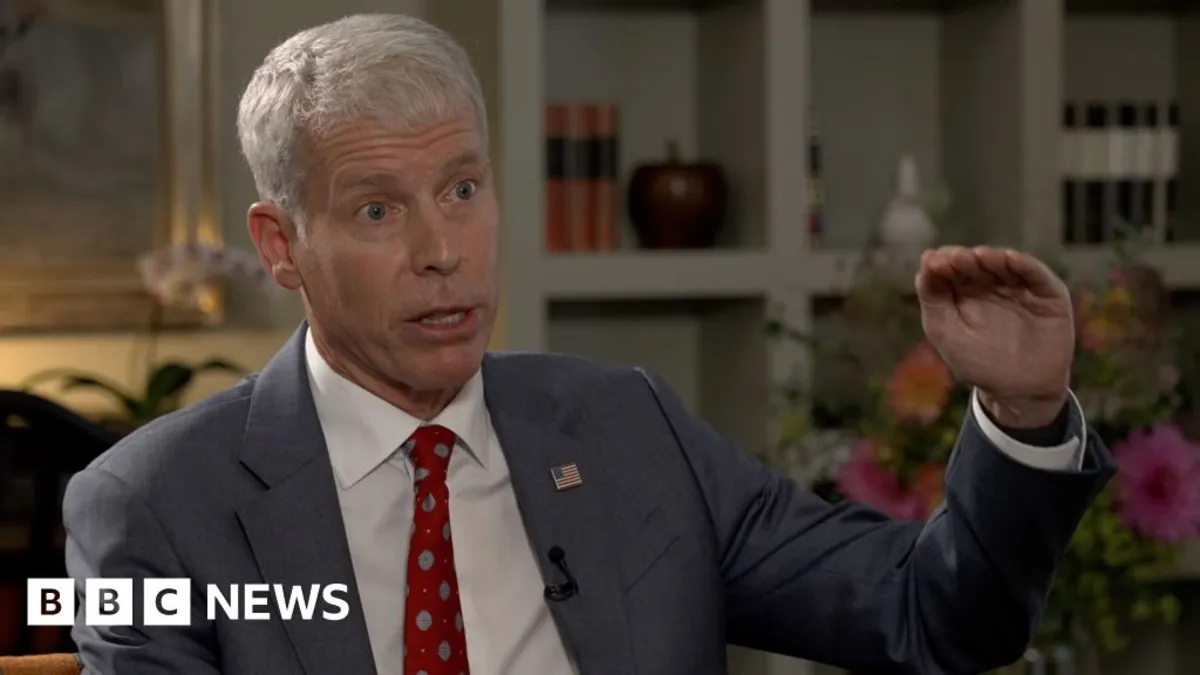
In a recent interview with the BBC, US Energy Secretary Chris Wright made bold claims about the future of energy, stating that nuclear fusion technology will soon revolutionize the global energy landscape. He predicts that advancements in artificial intelligence (AI) will enable the harnessing of nuclear fusion—the same energy that powers the sun and stars—within the next five years. Wright believes that this breakthrough could lead to significant reductions in greenhouse gas emissions within a timeframe of eight to 15 years.
Wright's assertions may surprise even the most optimistic supporters of nuclear fusion technology. The potential for harnessing the energy released during atomic fusion could yield vast amounts of low-carbon energy. However, most scientists remain skeptical, believing that the development of commercial fusion power plants is still a considerable distance away. Wright emphasized, "With artificial intelligence and what's happening at national labs and private companies in the United States, we will have multiple methods to harness fusion energy within the next five years."
He elaborated that the technology could be integrated into the electric grid within a period of eight to 15 years, providing a sustainable energy source without contributing to global warming. Nuclear fusion, which Wright studied extensively in university, could one day offer an energy solution that does not exacerbate atmospheric heating. Nevertheless, the process is complex, requiring the heating of atoms to temperatures significantly hotter than the sun.
Currently in Brussels ahead of Trump’s upcoming state visit to the UK, Wright argued that fracking could substantially benefit the UK economy. Drawing from his experience in the fracking industry, he suggested that increased oil and gas production could revive manufacturing jobs and lower energy costs for both households and industries. The political party Reform UK has even indicated plans to promote fracking if they win the next election, although the British Geological Survey has cautioned against overestimating the potential yield of UK fracking operations.
During the interview, Wright defended the Trump Administration's cuts to renewable energy subsidies, questioning the need for continued financial support for wind and solar power after decades of backing. He stated, "Wind power has been subsidized for 33 years and solar for 25 years. Isn’t that enough?" Furthermore, he stood by a contentious report from the Department of Energy, which claims that the threat of climate change has been exaggerated. This report has faced criticism from over 85 international scientists, who argue it contains numerous errors and selective data representation.
Despite the backlash, Wright maintained that it is often climate scientists who engage in "cherry-picking" data. He acknowledged climate change as a real and pressing issue but expressed his belief that global decarbonization would take generations rather than mere decades. "I’m delighted my report has sparked such rigorous debate," he remarked, emphasizing the importance of open dialogue on climate issues.
Wright refuted claims that the Trump Administration’s budget cuts to climate science would hinder US research efforts, including a proposal to reduce funding for the National Oceanic and Atmospheric Administration (NOAA). Concerns have been raised about the potential impact of these cuts on weather satellite development and the Mauna Loa Observatory, which has provided the longest record of CO2 measurements. Responding to these worries, Wright stated, "There are a lot of rumors about terrible things happening. The US government is trying to restore real science." He concluded by noting that the politicization of climate science has led to a stifling of diverse scientific perspectives.